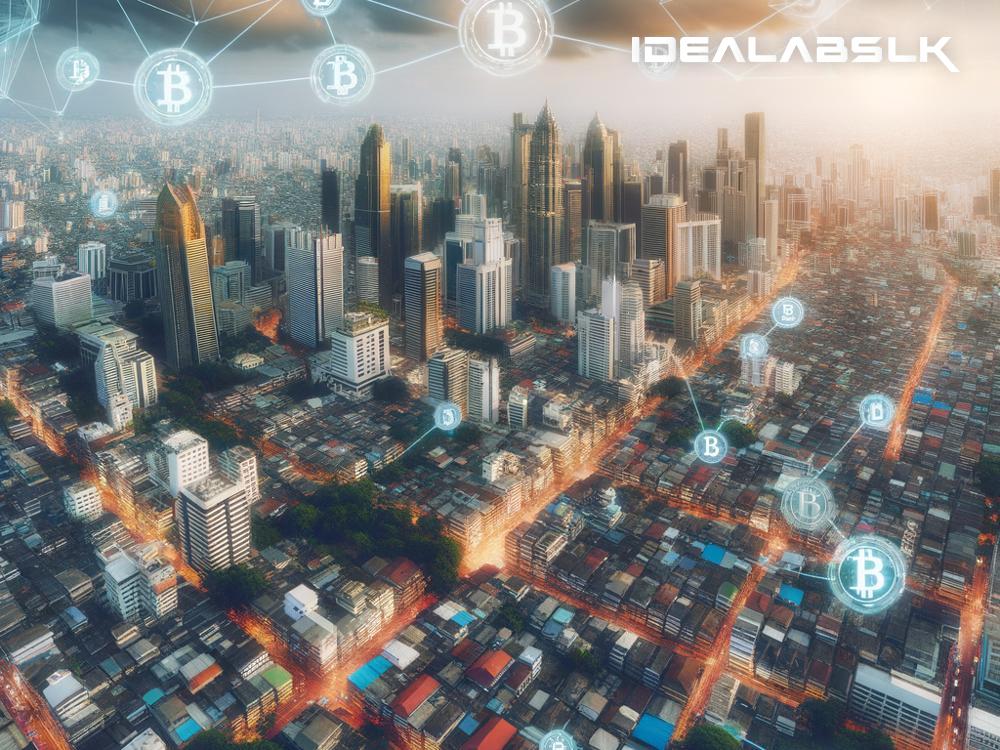Blockchain: Revolutionizing Real Estate Transactions for Faster Deals
In the world of buying and selling properties, there's a new game-changer in town – and its name is Blockchain. This technology, best known for powering cryptocurrencies like Bitcoin, is now making waves in the real estate sector, promising to make transactions faster, smoother, and more secure. But what exactly is blockchain, and how can it speed up real estate deals? Let's break it down in simple English.
What Is Blockchain?
Imagine a digital ledger that's publicly accessible, where each transaction is recorded and verified by a network of computers. This ledger is secure, transparent, and tamper-proof, making it an ideal platform for recording ownership and transactions of assets – like real estate properties. In essence, blockchain provides a way to track and confirm the transfer of property rights with unparalleled security and speed.
The Traditional Real Estate Process: Slow and Cumbersome
Traditionally, buying or selling a property involves a lot of paperwork, third-party verification (like lawyers and banks), and plenty of time. From the moment you agree to buy a house to the day you finally hold the keys, it can take several weeks or even months. The process is filled with checks and balances, including financial checks, title searches, and the transfer of funds and documents, which can be both frustrating and time-consuming for everyone involved.
How Blockchain Speeds Things Up
-
Immediate Property Verification: With a blockchain system, the history of a property, including past transactions, current owner, and even encumbrances (like liens or mortgages), is securely recorded on the blockchain. This information is easily and instantly accessible, significantly reducing the time needed for property verification.
-
Smart Contracts: These are self-executing contracts with the terms of the agreement directly written into lines of code. In the context of real estate, this means that the transfer of ownership can automatically occur once certain agreed-upon conditions are met, without the need for intermediaries. This dramatically speeds up the transaction process.
-
Transparent Transactions: Because all transactions on a blockchain are recorded and visible, there is a high level of transparency. This reduces the need for trust parties to manually verify the legitimacy of each transaction, further reducing delays.
-
Secure and Immutable Records: The secure nature of blockchain technology means that once a transaction is recorded, it cannot be altered or deleted. This eliminates disputes over property ownership and can potentially reduce the need for title insurance.
-
Streamlined Payments: Blockchain enables the use of cryptocurrencies for transactions, which can significantly speed up the process of transferring funds. Unlike traditional bank transfers that can take days to clear, cryptocurrency transactions can be almost instantaneous.
Real-World Impact
The practical implications of blockchain in real estate are profound. For buyers and sellers, it means a dramatic reduction in the time it takes to close a deal – from months to possibly just days or hours. For real estate professionals, it offers an opportunity to streamline operations and focus on providing value-added services, rather than getting bogged down in administrative tasks.
Moreover, the increased efficiency and security brought by blockchain could open up real estate investment to a broader range of people. Smaller investors could more easily engage in property transactions, potentially leading to more dynamic and accessible real estate markets.
Challenges Ahead
Despite its potential, the widespread adoption of blockchain in real estate faces challenges. Regulatory hurdles, the need for a significant shift in how real estate transactions are traditionally conducted, and the technological learning curve for all parties involved are among the obstacles that need to be tackled.
Conclusion
Blockchain technology has the potential to revolutionize real estate transactions, making them faster, more secure, and less cumbersome. While there are challenges to overcome, the benefits – from accelerated deal closure to increased transparency and security – suggest that blockchain could well be the future of real estate. As the technology continues to evolve and gain acceptance, we may soon see a world where buying a house is as simple and swift as making an online purchase – a true game-changer for the industry.

